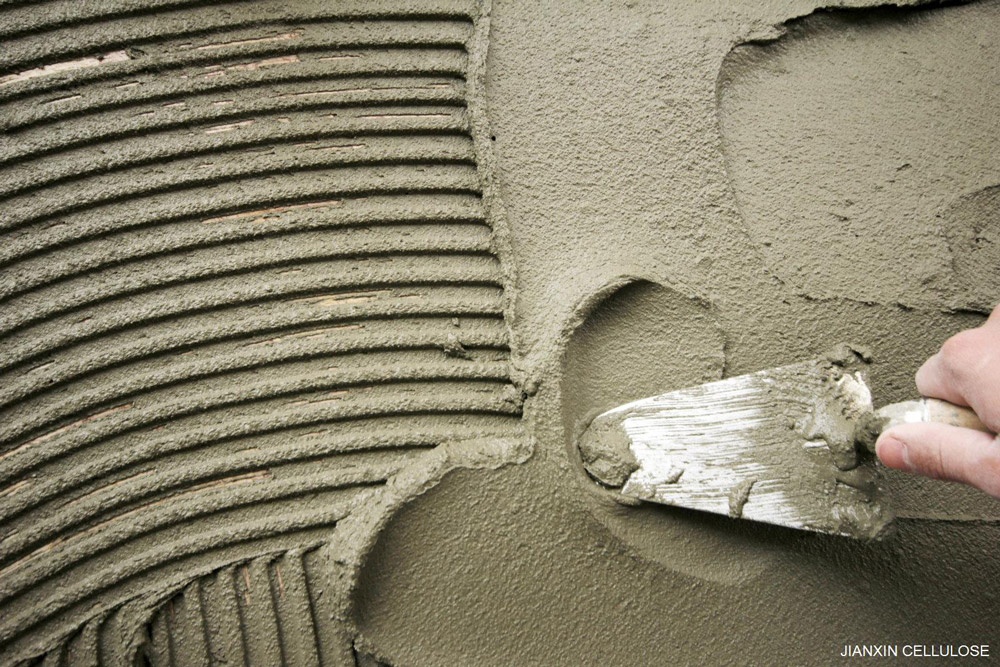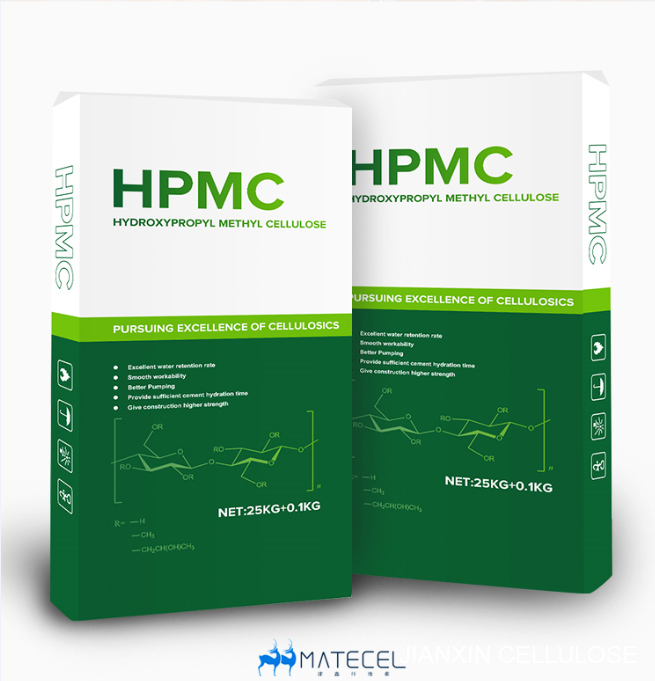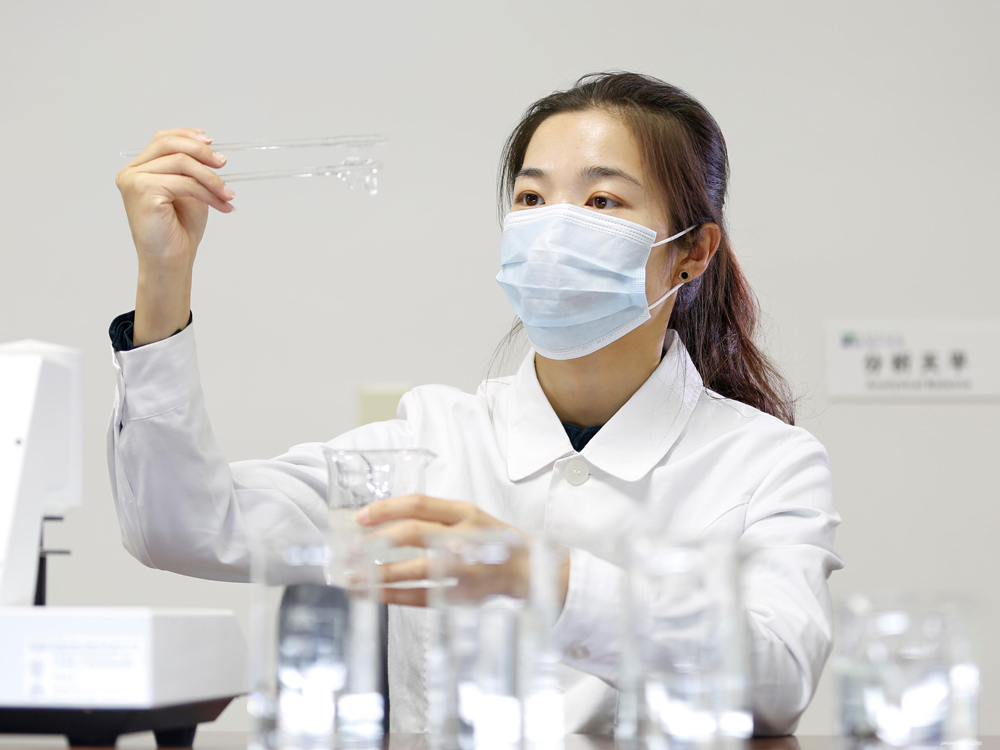Jul. 05, 2022

HPMC can improve product functionality very well, and is now widely used in the construction industry, especially in tile adhesives.
Tile adhesive is a new modern decoration material used for pasting decorative materials such as ceramic tiles, surface tiles, and floor tiles. Is made up of cement, sand, calcium formate, and additives in a particular proportion. It has the advantages of high adhesion, good flexibility, and so on.
There are many kinds of additives in tile adhesive, but cellulose ether additives (especially hpmc and hemc) that can improve water retention, thickening effect and open time are usually added to tile adhesive.
So choosing a good tile adhesive can significantly improve your work efficiency and the aesthetics of the final result. We've put together this handy guide to help you.
What types of tile adhesive are there?
There's two different types of tile adhesive, ready mixed pastes and powdered adhesives. As the name suggests, ready mixed pastes can be used straight so they're pretty easy to use. But with ease comes limitations.
In general, pastes can only be used to fix smaller ceramic tiles to walls. On the other hand, powdered adhesives need to be mixed with water into a slurry which takes a little more time and effort. However, they offer a far stronger bond and in general, can be used to fit ceramic, porcelain and natural stone tiles to almost any substrate.
It is worth mentioning that, hpmc is an important additive to enhance the viscosity of tile adhesive. Generally, the higher the viscosity of the HPMC solution, the better the viscosity of the tile adhesive and the better the adhesion to the substrate.
The viscosity of HPMC generally refers to a particular concentration (2%) of HPMC solution, at a specified temperature (20°C) and shear rate (or rotation rate, such as 20rpm), the viscosity value measured with a specified measuring instrument.

How to choose tile adhesive?
Flexibility
Even in your home, floor tiles experience a lot of stress from foot traffic, underfloor heating and movement in the subfloor. The adhesive bed can absorb this stress to reduce the chances of your new floor cracking; the more deformable (or flexible) the adhesive, the more peace of mind you'll have.
Open Time/Setting Time
Powdered adhesives are often classified as either 'standard' or 'rapid' setting – this refers to the working time you have to use the product. The faster the adhesive sets, the sooner you can get onto grouting and finishing your room. However, there's plenty of times when you'll prefer to use an adhesive with a longer opening time – when laying large format tiles to a wall and you want to ensure a flawless finish.
Underfloor Heating
If you're looking to install either wet or electric underfloor heating, it's vital that you use a flexible tile adhesive. The heating and cooling processes generate considerable stresses and a flexible adhesive will absorb these, reducing the chances of your tiles cracking over time. However, we'd really recommend using a self-levelling compound to cover the cables and provide a perfectly flat surface to tile onto.
Primer
Absorbent surfaces such as plaster can suck the water out of the tile adhesive, reducing the bond strength and working time. It is very necessary to choose tile adhesive with good water retention.
Of course, the performance I mentioned here can be improved by adding hpmc to achieve the final effect you want. HPMC is playing an essential role in tile adhesives to improve the key properties like water retention, slip resistance, and workability, etc.

Are there any other benefits of adding hpmc?
It has thickening, adhesion ,dispersing, emulsifying, film, suspended, adsorption, gel, and protetive colloid properties of surface activity and maintain moisture function properties ect. Is used for wall putty, tile adhesive, cement mortar, dry mix mortar, wall plaster, skim coat, mortar, concrete admixtures, cement, gypsum plaster, joints fillers, crack filler, etc.
Now! Through the above explanation, briefly summarize the benefits of adding hpmc to tile adhesive:
Extended Open Time: HPMC helps to extend the open time of tile adhesive. Open time refers to the duration during which the adhesive remains workable after application before it starts to set. By slowing down the drying process, HPMC allows installers more time to adjust and position tiles, especially in large or complex tile installations. This reduces the risk of premature setting and helps achieve better overall tile alignment.
High water retention: HPMC has excellent water retention properties, which is particularly important for tile adhesive. It helps to prevent the rapid evaporation of water from the adhesive, ensuring that sufficient moisture is available for proper hydration of cementitious materials within the adhesive. This promotes better curing and bonding, resulting in stronger and more durable tile installations.
Thermal stability improved:
Less retardation of cement hydration
Excellent sag resistance: Tile adhesive containing HPMC has increased sag resistance. Sagging refers to the downward movement of adhesive when applying tiles on vertical surfaces, such as walls. HPMC improves the thixotropic properties of the adhesive, reducing its tendency to sag or slump. This ensures that tiles remain in their intended position during the curing process, preventing potential misalignment or unevenness.
Good consistency: HPMC enhances the workability of tile adhesive by improving its flow and consistency. It acts as a rheology modifier, ensuring that the adhesive is easy to spread and apply evenly onto surfaces. This makes it easier for installers to achieve proper coverage and alignment of tiles, resulting in a smoother and more efficient installation process.
Good workability: easy use: HPMC enhances the workability of tile adhesive by improving its flow and consistency. It acts as a rheology modifier, ensuring that the adhesive is easy to spread and apply evenly onto surfaces. This makes it easier for installers to achieve proper coverage and alignment of tiles, resulting in a smoother and more efficient installation process.
Good anti-crack, anti-shrinkage: HPMC enhances the flexibility and elasticity of tile adhesive. This helps to improve its resistance to cracking caused by stress or movement in the substrate or tiles. By accommodating slight movements or vibrations, HPMC reduces the likelihood of cracks forming in the adhesive layer, thereby maintaining the integrity and longevity of the tiled surface.
Overall, adding HPMC to tile adhesive significantly improves its workability, adhesion, sag resistance, open time, water retention, and crack resistance. These benefits contribute to successful tile installations that are aesthetically pleasing, durable, and capable of withstanding the demands of various environments and applications. Obviously, adding hpmc to tile adhesive is very necessary.
The ultimate guide on HPMC and how to buy?
According to the application field, HPMC is divided into construction-grade HPMC, daily chemical-grade HPMC, food-grade HPMC, and pharmaceutical-grade HPMC. The tile adhesive uses HPMC and belongs to the building material grade.
Viscosity is an indispensable indicator of HPMC. According to different viscosity, HPMC can be divided into three grades: low, medium and high, and because of the other properties of hpmc, we have further subdivided many grades.
For details, please refer to here. If you want to buy hpmc, you can contact us here.
Matecel cellulose ether products (HPMC,HEMC,RDP&HEC) can ensure the smooth construction of different types of tiles on various substrates, even if the ambient temperature is relatively high. It can also offer the tile adhesive a long enough open time for adjustment.
We are the excellent hpmc (hydroxypropyl methylcellulose) supplier for tile adhesive. If you have problem, please contact to us. We will offer you competitive price and professional services.
The application of Matecel hpmc products can effectively improve the quality of tile adhesives.
Shijiazhuang Henggu Jianxin Cellulose Co., Ltd.
Chemical Industrial Park, Xinji City, Hebei Province, China Post Code: 052360
Copyright 2023 Shijiazhuang Henggu Jianxin Cellulose Co., Ltd. All Rights Reserved